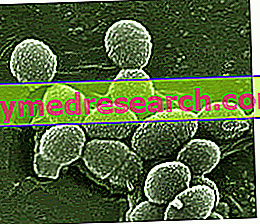See also: lactulose
What is lactitol
Lactitol is a disaccharide belonging to the category of sugar alcohols, used as a sugar substitute in light foods, in supplements and in various diet products. Its sweetening power is in fact equal to 40% of that of sugar (sucrose), while the energy density is only 2.4 kilocalories per gram (compared to 4 of sucrose).

Production
Lactitol is not extracted from food, but artificially prepared from milk sugar, through reduction under pressure and at high temperatures of glucose (remember that lactose consists of the union of a glucose molecule with a galactose molecule).
Properties and Uses
Unlike the typical disaccharide of milk, lactitol cannot be digested by brush border lactases; consequently it cannot even be absorbed by the intestinal villi. For this reason, at high doses, lactitol causes osmotic diarrhea and can therefore be used as a laxative .
Lactitol also acts as a prebiotic, decreasing fecal pH and preventing the proliferation of putrefactive bacterial flora (producer of ammonium), in favor of useful bacterial strains, which ferment it producing, among other things, organic acids that can be absorbed by the intestinal mucosa ( which justifies its not negligible caloric power).
Lactitol can also be used by diabetics, given the very low glycemic index, and is acariogenic (it does not promote the onset of dental caries).
Side effects
At high doses, given the organism's poor digestion and absorption capacity, lactitol - in addition to accelerating the transit of feces and producing a precious prebiotic action - can cause side effects such as swelling, abdominal cramps, diarrhea and flatulence.



